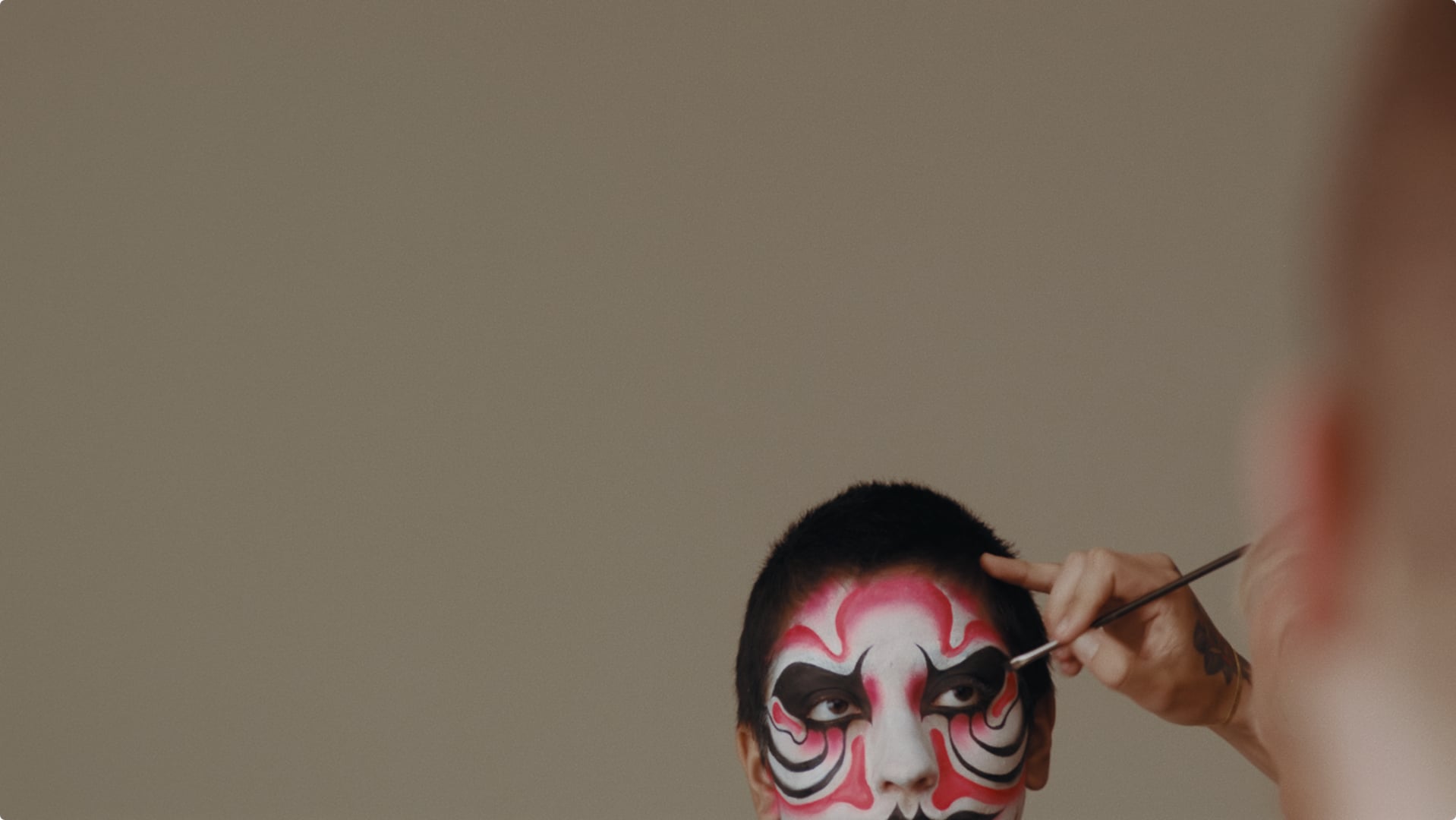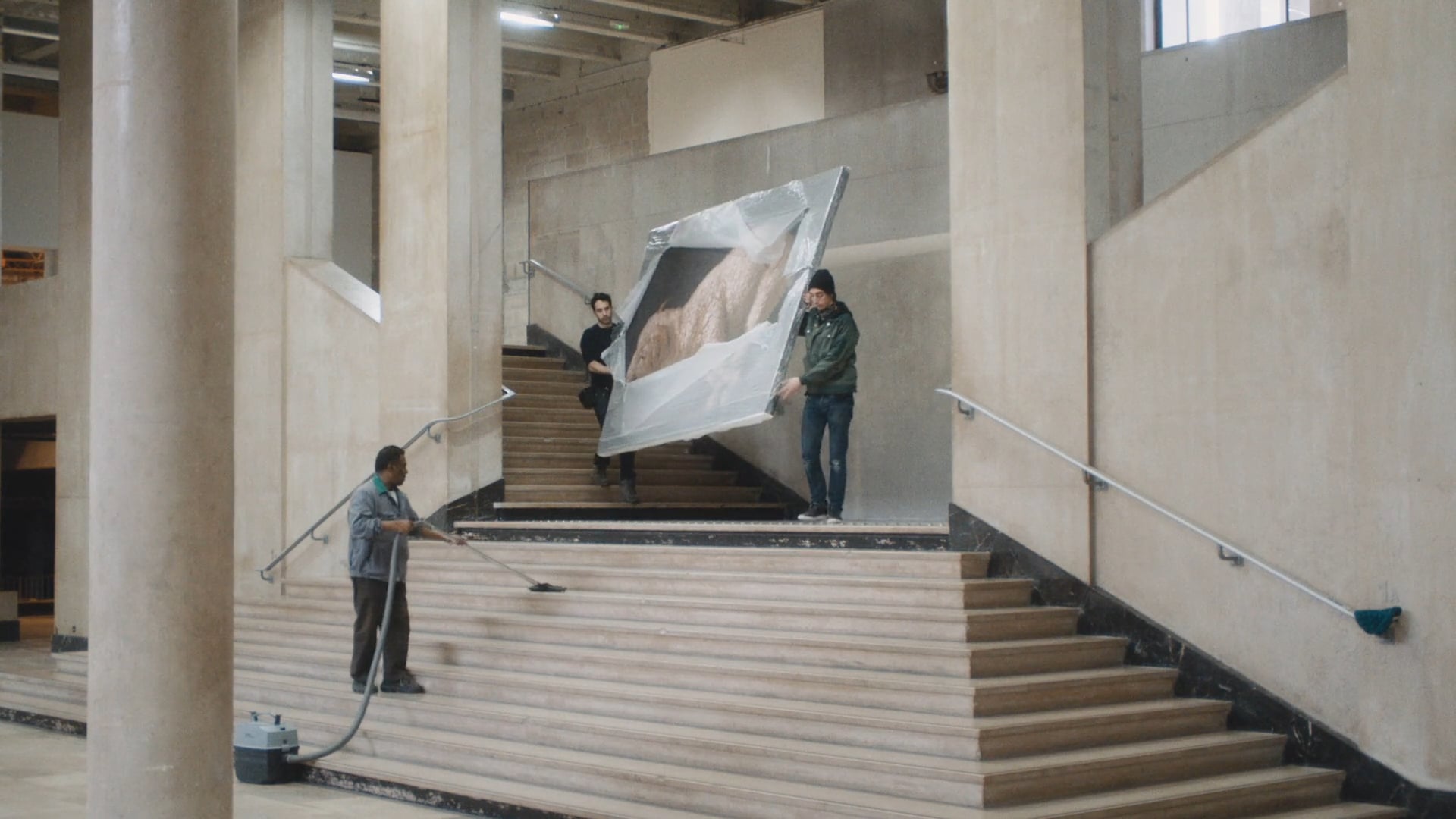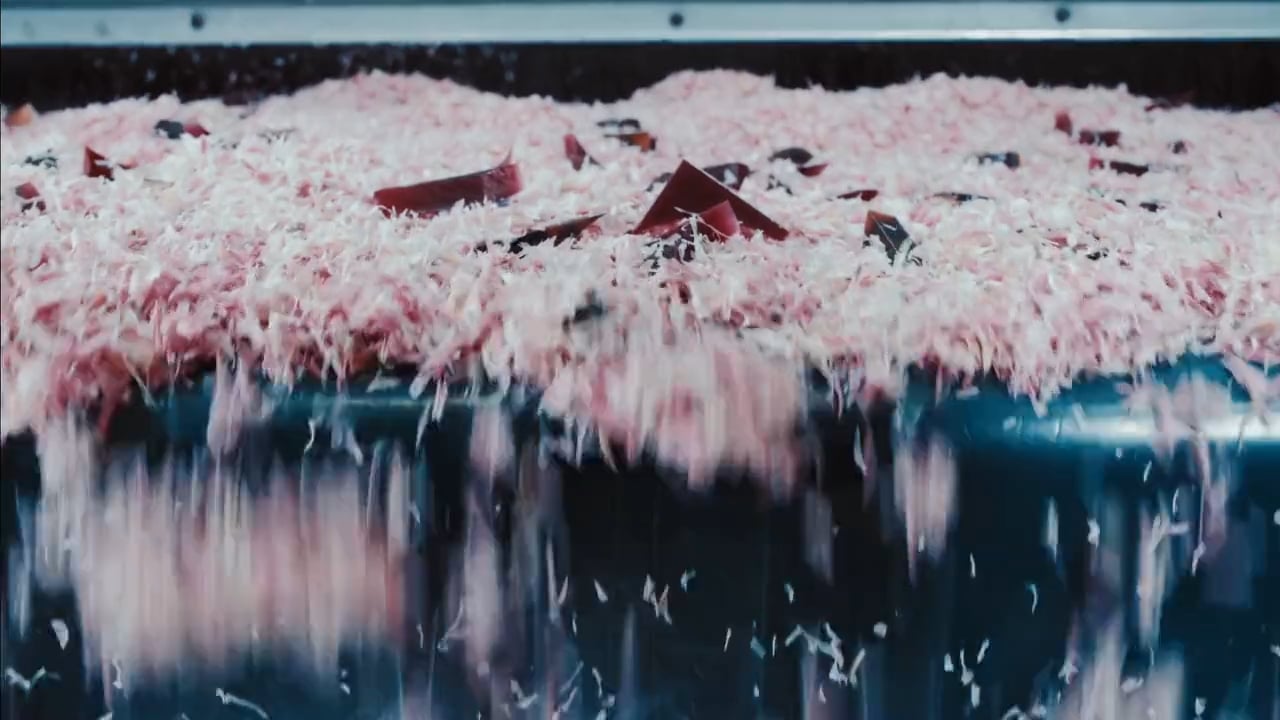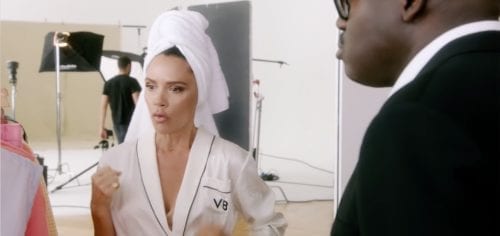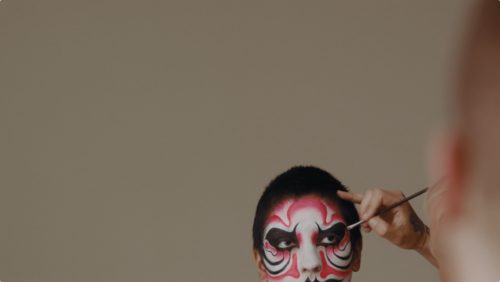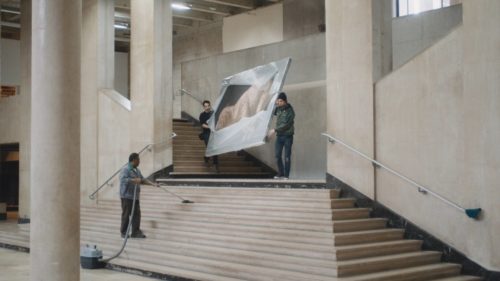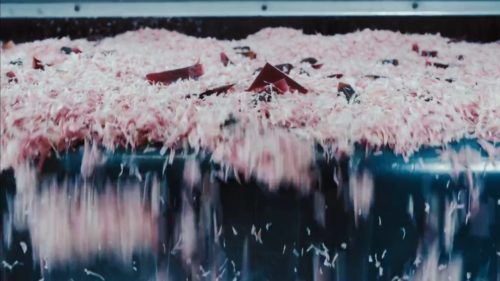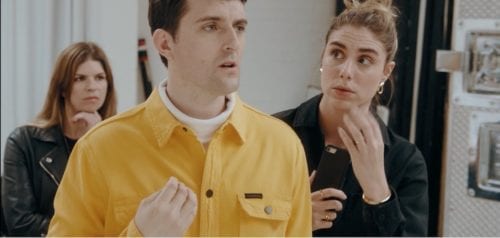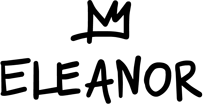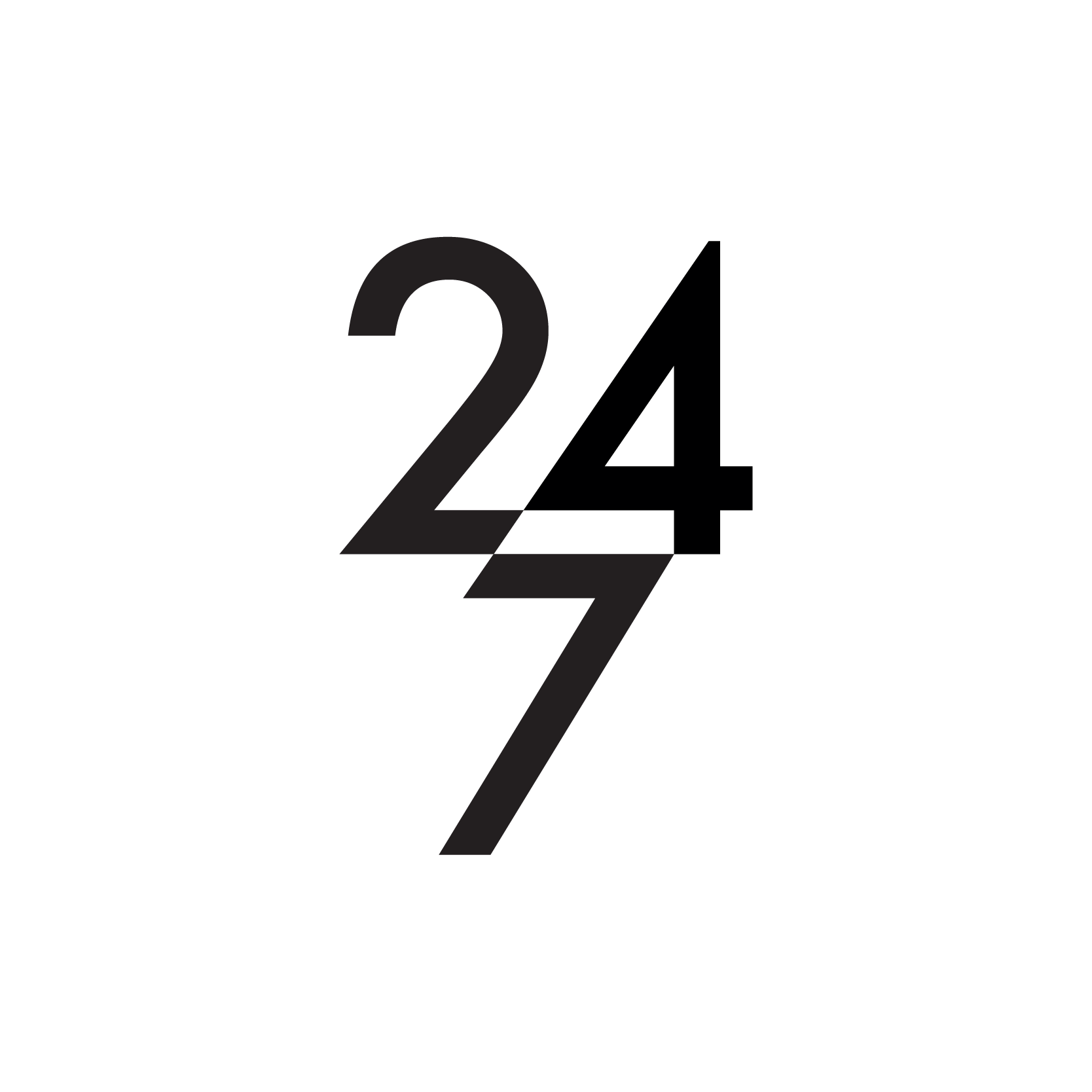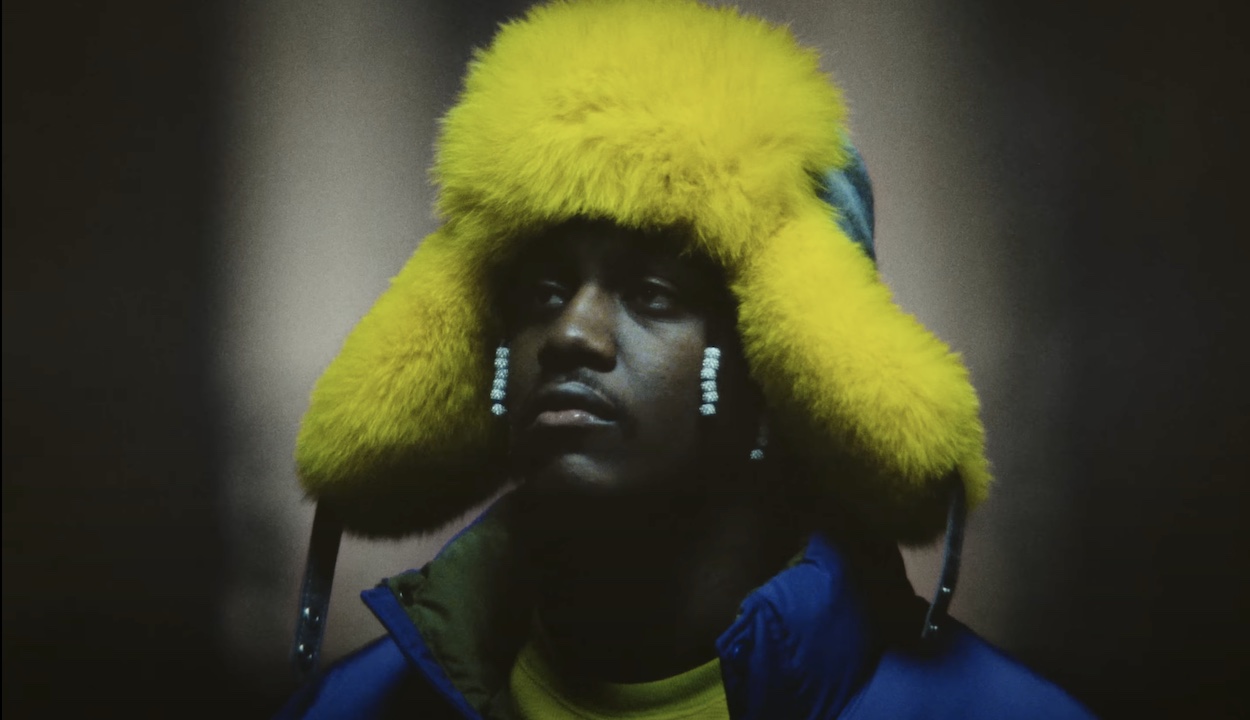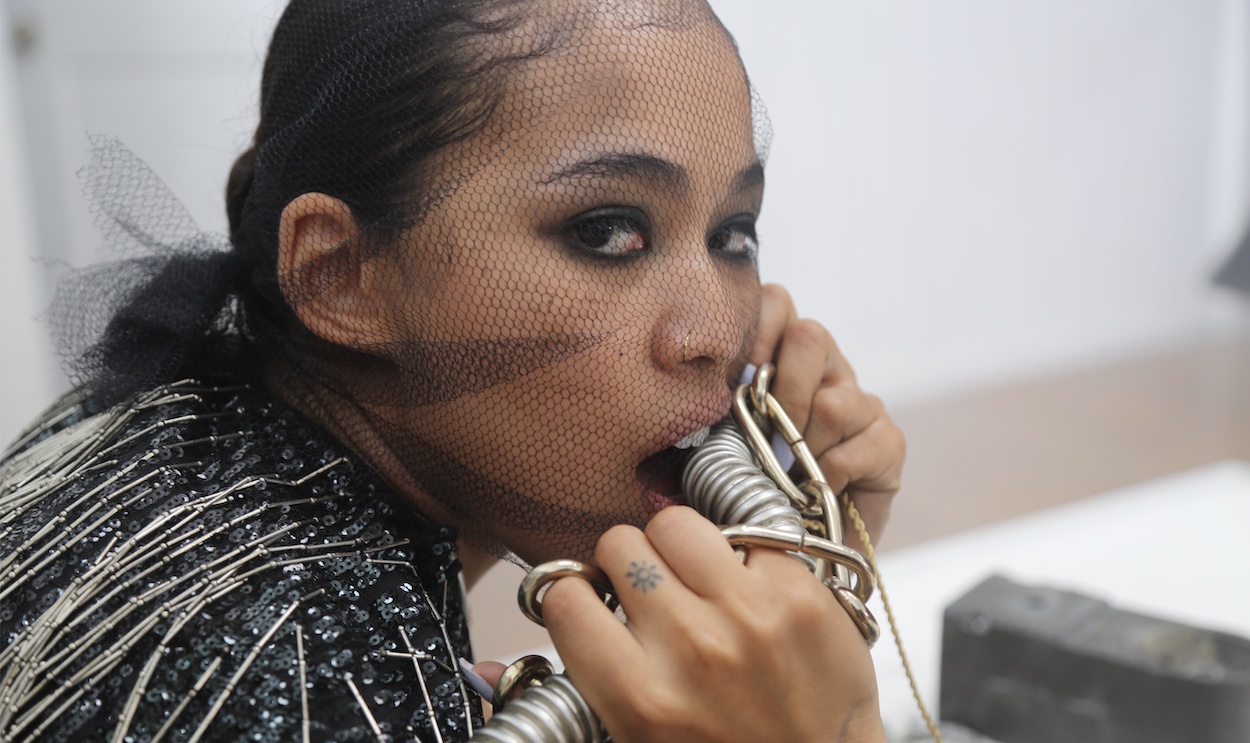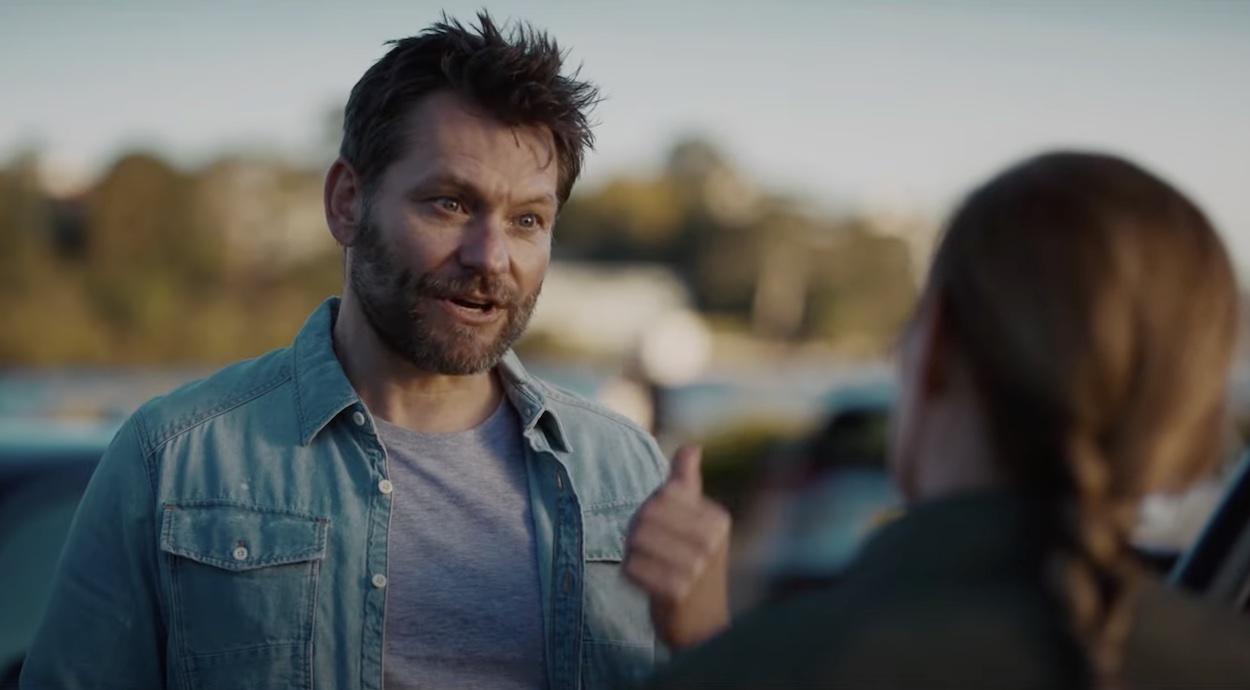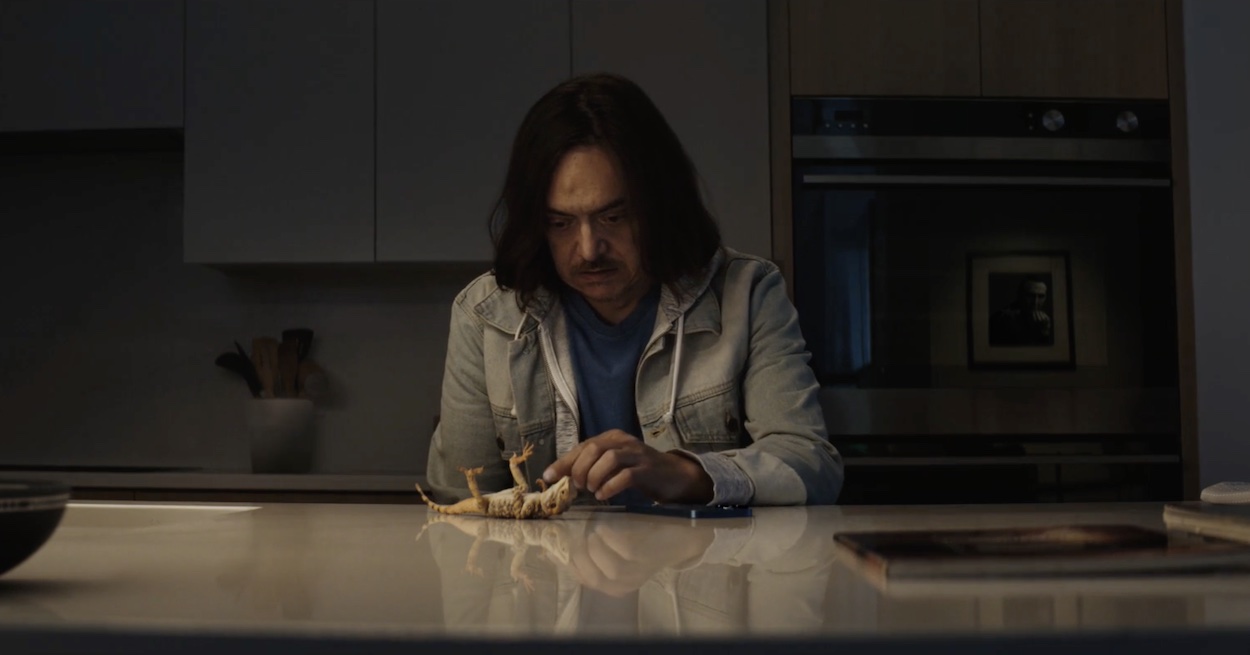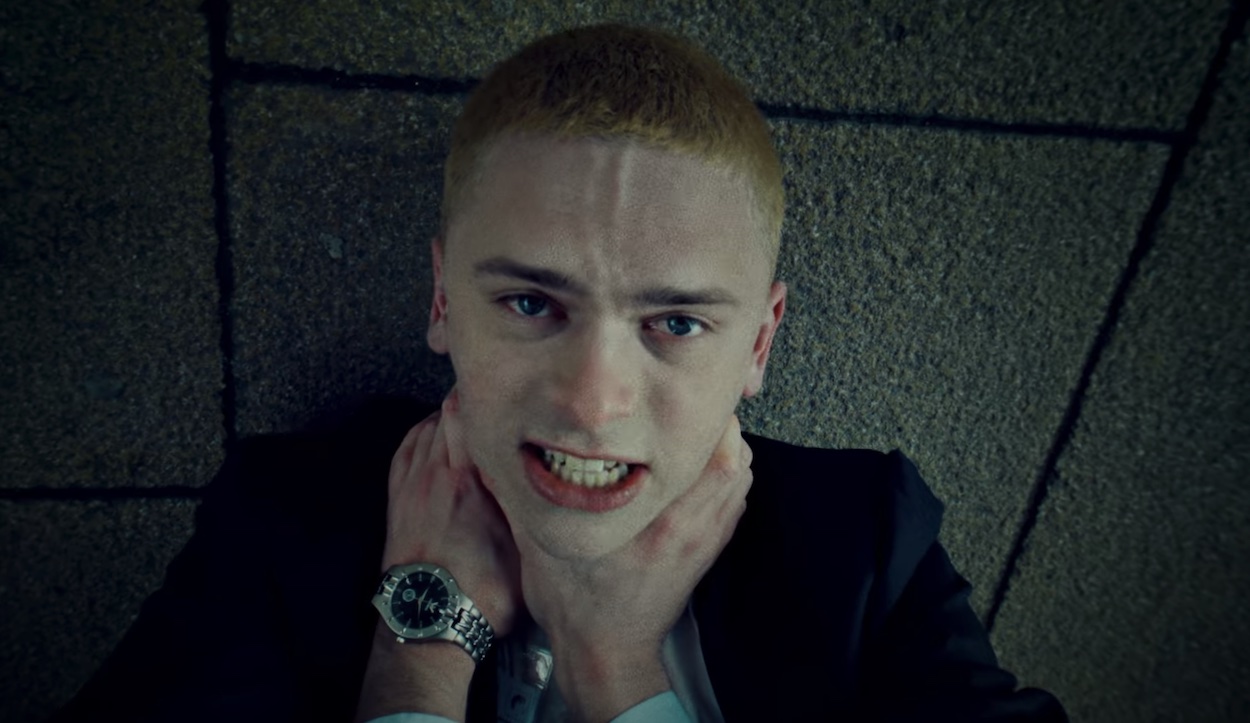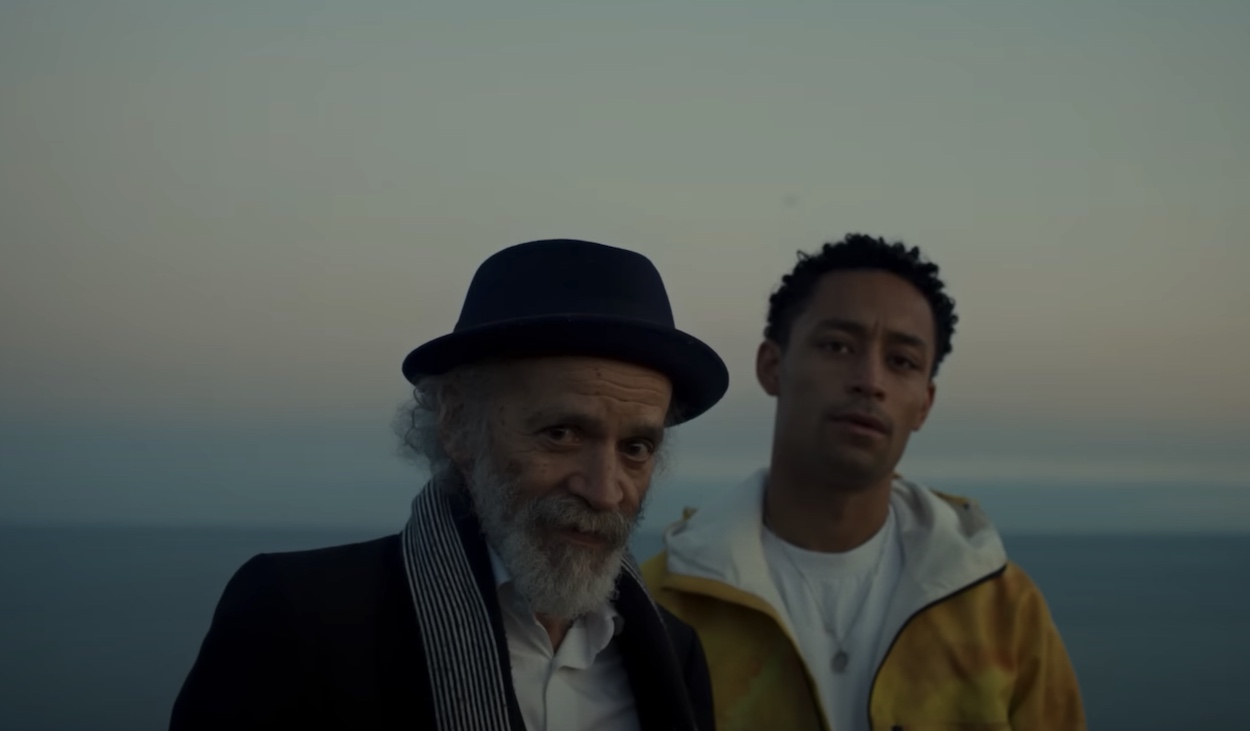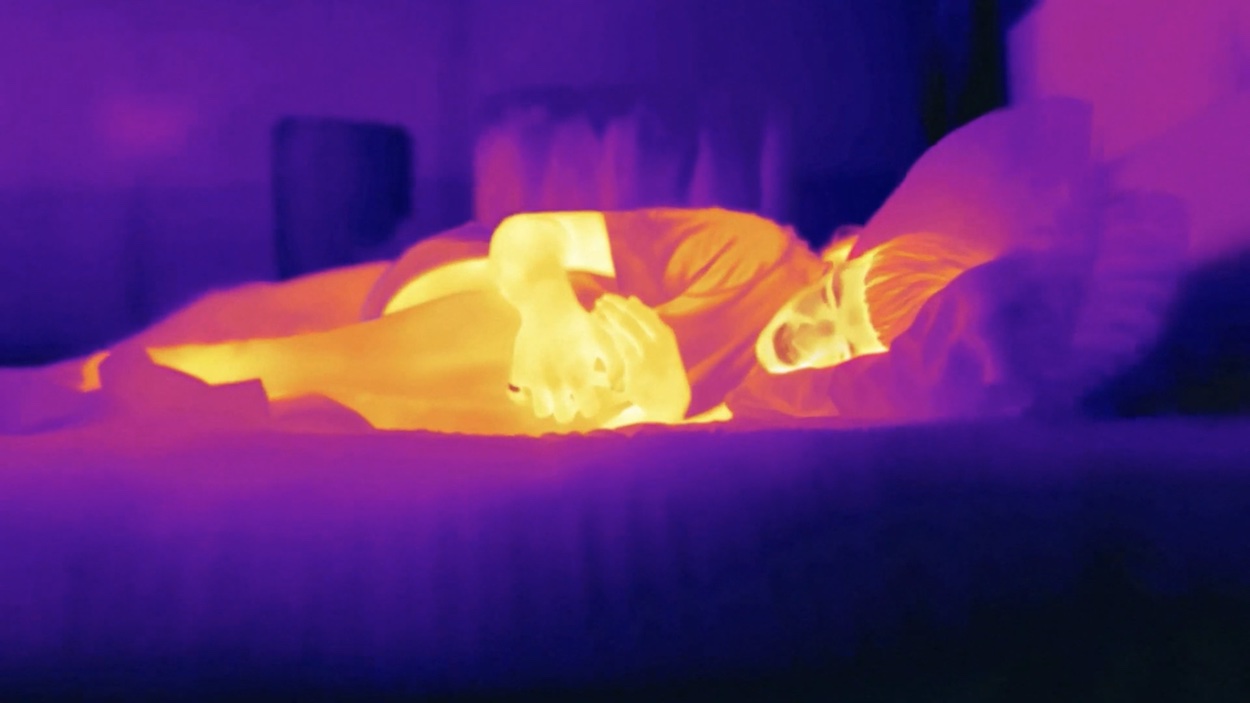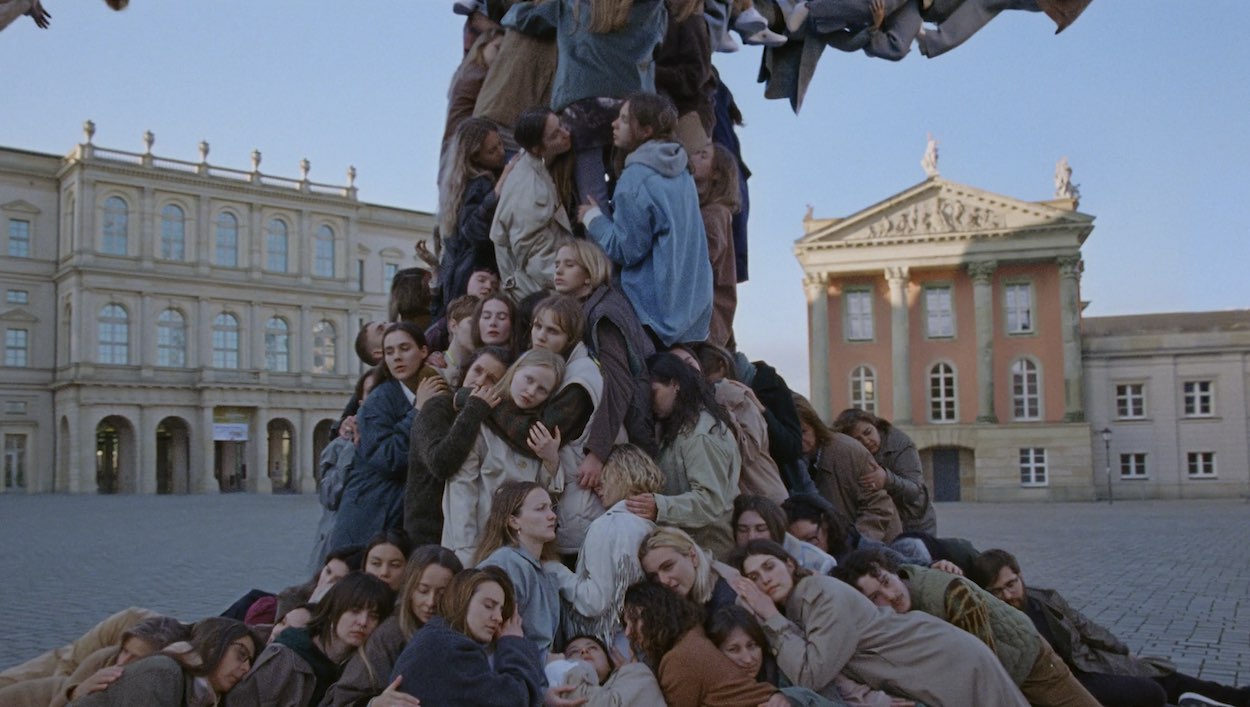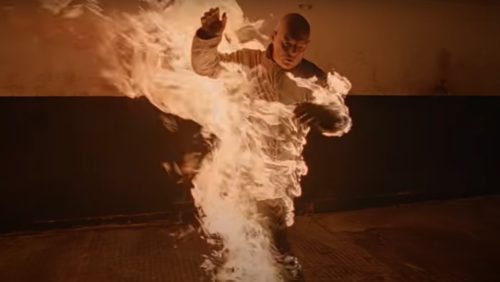I have to admit there was a bit of a WTF moment (1:26 to be exact) viewing your latest film, Victoria Beckham, a Decade of Elegance. And then the penny dropped. It’s a spoof. How did you get the princess of pursed lips to poke such good fun at herself? Please tell us how the campaign came about and what was the brief?
Victoria Beckham is in fact very funny! She made me laugh from the first moment we met and actually doesn’t take herself too seriously at all. The project came about because Vogue had seen and loved some other mocumentary films I had done, and they were in touch with VB about doing something to celebrate the brand’s anniversary. I had good chemistry with VB and the team and was very fortunate in that they trusted me to take things quite far away from the original brief and to write it in the way I knew would work.
What was the nature of the collaboration with Vogue and Victoria like – was there much toing and froing in pre-production?
One thing that was really good was that there was a totally open dialogue and no one was too precious on either side – we had a very open channel of communication, so I had a good sense of how far to push the jokes, knowing that it wouldn’t be a big deal for Victoria to push back if I went too far. I think we had an understanding that she wouldn’t be offended if a certain gag crossed the line and I wouldn’t be offended if she pushed back. It came down a lot to confidence and trust I think. There was no tip-toeing around from anyone, which I think was good.
What were the main challenges of the production and how did you resolve them?
Obviously, there are a lot of people in the film who don’t usually act. I love working with non-actors, I think it can make things much more authentic and funny, but it means developing a particular awareness of when people are and are not comfortable, and directing them in a flexible way that lets you use their natural reactions, rather than freaking them out by asking them to do things unfamiliar to them. Or maybe I did freak them out anyway. But if I did they were very generous anyway. Also, it’s always tricky when talent wise you’re juggling lots of very busy people’s schedules on a shoot day, but we found that people were super generous with their time. Our producer, Elly Camisa, and 1st AD Clara Paris obviously did a super good job of getting everyone to be where they were and making them comfortable.
Your body of work shows an insider knowledge of the fashion industry. What were your experiences that led to this understanding?
Well I was a writer/journalist and magazine editor for about 10 years. I started interning on the fashion desk of the Observer when I was in university, and kind of stuck around soaking things up. I started working straight out of uni because I really needed a job and by the time I was 25 I was an editor at Love Magazine. Through that job – which came about entirely through the Editor in Chief Katie Grand taking a punt on me as a pretty much-untested entity – I was outspoken but unproven – I got to travel all over the world and meet all kinds of fascinating people with fascinating stories. I really developed the utmost respect for people who work in the fashion industry and live and breathe it. That level of passion and dedication to their work is rare, and also attracts all kinds of incredible characters. While I was at Love I started to work on developing their online presence – this was before/during the start of Instagram being what it was today – and from that segued into producing films and videos for brands, alongside working as editor of another magazine called Fantastic Man.
Your films are beautifully shot and framed. Where did you learn the craft of filmmaking?
Just from watching films and making things. Winging it. Since I started writing myself into everything I’ve done a lot of Meisner acting training, which has definitely contributed a lot to how I work with people and think about performances, but in terms of the rest of it, I really learned by just saying I could do it and working it out as I went along. A series of scams, to be honest.
You lampooned yourself as a director in your film Black for Nowness – how much is this really you or are you portraying yourself as a third person?
It’s 100 percent me, I am a living nightmare dreamed up by the beauty devil. Not really. I like to do work that plays with and makes fun of and heightens my own anxieties and neurosis. I think I do have those drives and ridiculous ambitions in me, but then I think so does everyone in any creative field.
How much of your films evolve in the edit? Do you usually have the storyboard tightly drawn up before a shoot?
People often think that the whole thing of my films is that they’re ad-libbed and improvised on the shoot, but that’s really not the case. With everything I do – not just in films but everything – I am obsessed with preparation to a probably unhealthy degree, so when it gets down to shooting the script has usually been workshopped and rehearsed and any ad-libbing that’s going to happen has happened and been written down and recorded in a nice orderly way, so all we’re experimenting with on the shoot is delivery. Then in the edit quite often new beats or gags emerge when we tie people’s facial reactions onto things or switch punchlines. I’m a big believer in the power of an awkward glance, and I without fail keep the cameras rolling for much longer than is comfortable to make sure we get enough of them.
There are only four observational, albeit tongue-in-cheek, fashion films in your stand-out portfolio, all very different from each other and all fabulously crafted. What are you currently working on and does it involve fashion?
I’ve just finished a music video – a very pure pop moment with big splashy choreography in a nod to my other true love: music videos from 1998 to 2003, a golden age that was ushered in by Britney’s Hit Me Baby One More Time and out by Kylie’s Slow which is without question the best pop video ever made.
I also have a feature documentary, You Will Be With Us In Paradise coming out soon, about a divorced, British entrepreneurial couple who, having made a fortune with a pile ‘em high sell ‘em cheap knicker retail empire in the eighties, recently took it upon themselves to relaunch Fiorucci, the most iconic fashion brand to ever have existed. They’re like characters I would write, but real – fizzing with ambition in the face of naysayers, full of wild ideas and entirely on their own track. I’m developing a narrative series in the vein of my shorts, and also trying to learn to be content with the world of content, as one must to live in these times.
Are you interested in directing other genres?
I’ve yet to make a big, very funny commercial and I think I could definitely bring something new to that space, and I do like doing music videos because sometimes it’s nice to just make things that are beautiful and poetic and pop without the pressure of being wordy or funny on top.
Is it important to you that you write your own scripts?
It’s just what I’m used to, as both a writer and a control freak. I definitely don’t think I have to write everything, but I think if I don’t contribute something in that department I feel like a bit of a fraud.

